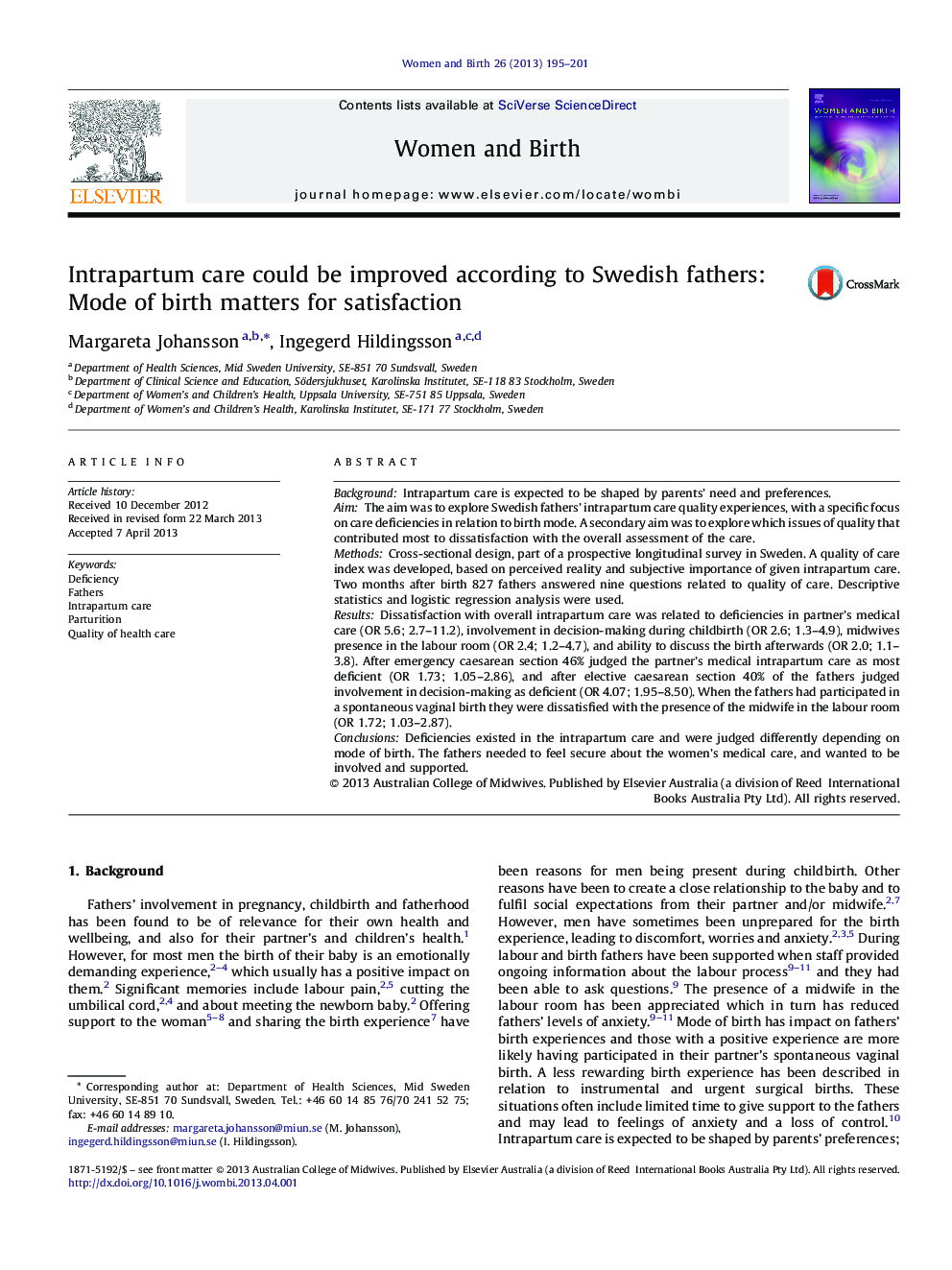| Article ID | Journal | Published Year | Pages | File Type |
|---|---|---|---|---|
| 2636022 | Women and Birth | 2013 | 7 Pages |
BackgroundIntrapartum care is expected to be shaped by parents’ need and preferences.AimThe aim was to explore Swedish fathers’ intrapartum care quality experiences, with a specific focus on care deficiencies in relation to birth mode. A secondary aim was to explore which issues of quality that contributed most to dissatisfaction with the overall assessment of the care.MethodsCross-sectional design, part of a prospective longitudinal survey in Sweden. A quality of care index was developed, based on perceived reality and subjective importance of given intrapartum care. Two months after birth 827 fathers answered nine questions related to quality of care. Descriptive statistics and logistic regression analysis were used.ResultsDissatisfaction with overall intrapartum care was related to deficiencies in partner's medical care (OR 5.6; 2.7–11.2), involvement in decision-making during childbirth (OR 2.6; 1.3–4.9), midwives presence in the labour room (OR 2.4; 1.2–4.7), and ability to discuss the birth afterwards (OR 2.0; 1.1–3.8). After emergency caesarean section 46% judged the partner's medical intrapartum care as most deficient (OR 1.73; 1.05–2.86), and after elective caesarean section 40% of the fathers judged involvement in decision-making as deficient (OR 4.07; 1.95–8.50). When the fathers had participated in a spontaneous vaginal birth they were dissatisfied with the presence of the midwife in the labour room (OR 1.72; 1.03–2.87).ConclusionsDeficiencies existed in the intrapartum care and were judged differently depending on mode of birth. The fathers needed to feel secure about the women's medical care, and wanted to be involved and supported.
